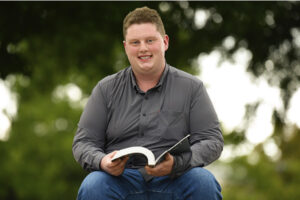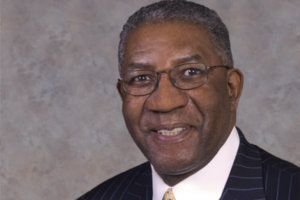The criminal justice minor consists of 18 hours and provides students a unique interdisciplinary approach to the study of the criminal justice system. Students will have the opportunity to take courses in Political Science, Psychology and Sociology. Students will study the American Criminal Justice System and become familiar with the concepts and research methods necessary to work in criminology or criminal justice. This minor will be useful preparation for careers in social service, counseling, law, law enforcement, corrections, and graduate studies.
Degree Outcomes
Students will study the American Criminal Justice System.
Students will be familiar with the concepts and research methods necessary to work in criminology.
Students can pursue careers in the justice system.
Sociology is the study of human social relationships and institutions. Sociology’s subject matter is as diverse as the subject it studies. Students who have been well trained in sociology know how to think critically about human social life and how to ask important research questions. Through its particular perspective, its social theories, and research methods, sociology increases awareness and analysis of the human social relationships, cultures, and institutions. Students trained in sociology have learned how to think, how to evaluate, and how to communicate effectively. These are all valuable abilities in a wide variety of vocations and professions. More specifically, a degree in sociology can qualify you for a career in human services administration, counseling, journalism, public office, law enforcement, corrections, social work or education. Sociology also provides a foundation for graduate study in theology, political science, the medical sciences, the arts, the humanities, and the service professions, as well as graduate study in sociology.
Degree Outcomes
Students learn the sociological perspective.
Students learn social theories and research methods.
Students learn to engage in the analysis of the human social culture.
Studying Political Science at University of the Ozarks will provide students with an opportunity to develop an in depth understanding of the institutions, practices and concepts that shape the world around them. Whether they are interested in American politics, International Relations, or the foundations of US law, Political Science students at U of O will work closely with dedicated faculty in a friendly but challenging environment where than will cultivate an ability to critically engage with important political questions and problems. The program is focused on providing students with practical experience and insights into politics, and has a range of opportunities for students that include Moot Court and Model UN programs, and support for students to pursue internships in government at the local, state, and national level.
Degree Outcomes
A Political Science degree is excellent preparation for law school or graduate school in public policy or political science.
Political Science majors go on to careers in government, media and business where they can apply their knowledge of political issues and institutions to work on policy, inform and educate the public, and help develop successful business strategies.
Internship opportunities supported by U of O Political Science help students gain the experience they need to work on political campaigns or get jobs in the public sector after they graduate.
Physical Education majors at Ozarks learn how to become advocates for the public’s health through an important and ongoing study of behaviors associated with adopting an active lifestyle. By learning to apply methods for teaching and learning, Ozarks physical education majors help to explain the reciprocal relationship between physical activity, fitness, and health in an effort to reduce the risks associated with hypokinetic disease. To meet the significant challenges and opportunities related to active living within the American culture today, the physical education major at Ozarks offers instruction in many areas of the health sciences including: kinesiology, exercise physiology, health education, public health promotion, coaching athletics, administration of sport, physical education curriculum design for schools, and methods for teaching physical education programming. Completion of the physical education program of study will lead to a teaching license in Arkansas public schools for K-12 grades, and also provides opportunities for coaching athletics.
Degree Outcomes
Students become licensed physical educators.
Students pursue athletic coaching.
Students enroll in graduate programs.
Teacher candidates that complete all of the required components of the Pat Walker Teacher Education Program will be eligible for an Arkansas teaching license at the end of their program of study. Our program will not align with the teacher certification licensure requirements of other states. Graduating from the University of the Ozarks Teacher Education Program will not automatically qualify program completers to receive a teaching license in another state. Teacher candidates and program completers will want to consult the Department of Education website of their preferred state in order to examine educator licensure and reciprocity requirements should they seek licensure in a state outside of Arkansas. Foundations of Reading Information
Elementary Education majors at Ozarks are engaged in important discussions about the role of the public schools in producing educated citizens, and address the question, “What is the proper education of the people?” Elementary teachers form the foundation of that proper education, so our majors display competency in many content areas including literacy, language, life science, physical science, mathematics, fine arts, psychology, and computer science. Ozarks elementary education majors understand how the information to be learned in those content areas can be deployed through a host of methods and strategies grounded in theoretical and philosophical constructs from a knowledge base that all students in the classroom learn through different styles and at different rates.
Degree Outcomes
The majority of our students become practicing teachers in both public and private K-6 classrooms in the United States and abroad.
Students pursue Master’s in Teaching programs, preparing themselves for careers in administration, curriculum specialists, and college professors.
Students are also valued by professions in business, government, and other education related fields.
Teacher candidates that complete all of the required components of the Pat Walker Teacher Education Program will be eligible for an Arkansas teaching license at the end of their program of study. Our program will not align with the teacher certification licensure requirements of other states. Graduating from the University of the Ozarks Teacher Education Program will not automatically qualify program completers to receive a teaching license in another state. Teacher candidates and program completers will want to consult the Department of Education website of their preferred state in order to examine educator licensure and reciprocity requirements should they seek licensure in a state outside of Arkansas. Foundations of Reading Information
Accounting is frequently described as a field in which the demand for graduates is more than the supply can deliver. Department of Labor projections, surveys and polls by both the popular press and business-oriented press, and college career planning guides and websites consistently recommend accounting as a major where the demand for graduates is generally stable and salaries are competitive. A primary goal of the program is to satisfy the academic requirements for students to sit for the Certified Public Accountant (CPA) exam upon graduation. In many states, including Arkansas, graduates may sit for the exam with 120 semester hours, although all states require that practitioners have 150 semester hours to be eligible to receive the Certificate and Permit to Practice.
Jobs available to recipients of this degree include work as public accountants and auditors, governmental accounting and auditing, tax accountants and preparers, internal auditors, corporate accounting, corporate controllers, and other positions with a financial emphasis. Some of these positions will require specialized training beyond the bachelor’s and master’s level.
Degree Outcomes
Students will acquire an understanding of the importance of accounting which is critical in the writing of grants.
Students can function as financial reporting and cost accountants, with different specialties depending on the size of the organization.
Students have the foundational knowledge and skills to enable them to better prepare for the Certified Public Accountant examination.





